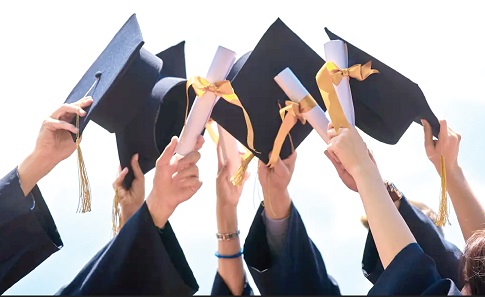
Politics and education in Ghana: The bane of our challenges?
Charity, they say, begins at home. It is, therefore, commendable that specialised institutions in Ghana, largely, spearhead major developments and reforms in areas where their expertise is required.
The Institute of Statistical, Social and Economic Research (ISSER), the Noguchi Memorial Institute for Medical Research (NMIMR) and the Department of Political Science, all at the University of Ghana, Legon, have, over the years produced research findings that have helped shape their respective areas - the economy, medical science and elections. Other universities are doing similar things.
Even though it is often said that the easiest way to destroy a country or a people is to destroy its/ their educational system, not much in terms of policy invigorating research findings disseminated in the way ISSER does its work has been heard of in the education sector.
Academics
The Institute for Educational Research and Innovation Studies (IERIS) of the University of Education, Winneba, over the week, held the maiden Annual State of Education in Ghana Lecture series.
Apart from setting the tone for intellectual discourse aimed at addressing the challenges and nurturing prospects in our educational sector, the Annual State of Education promises to be a medium for the dissemination of research findings in the area of education.
It is the case that governments around the world turn to universities for solutions to their problems and universities have proved capable of this task. The timely intervention of the NMIMR at the University of Ghana when COVID-19 visited us is testimony that our universities have what it takes to turn things around.
It is a truism that Ghana’s educational sector has many problems despite a series of reforms informed by various factors, usually embedded in the ideological inclination of those behind the reforms. That notwithstanding, it is academics who have often chaired the Educational reforms committees. For instance, the Kwapong Committee, the Alottey Committee, and the very recent Anamoah-Mensah Committee were all spear-headed by academics.
This, therefore, suggests that the academy cannot be delinked from the state of education today, although we know the overriding influence of the politicians.
Politics
The talk in town that the solution is to take out politics from our educational sector is utopian; it will never happen. Perhaps, a re-orientation of our mindset could be a game changer. It is only normal to expect policies and policy reforms that reflect the worldview of the President and his core team at any point in time. This is exactly what we have seen from all the policy reforms in our educational sector.
Interestingly, none of the policy reforms have successfully taken out the theory-dominated and practical subordinated quagmire which is part of our bane. This explains why we continue to produce graduates who are, primarily, job seekers.
But have the politicians - whether left or right - listened to the academics over the period, although they use academics to draft their policies? Surely, they may not need to do that if it will not inure to their electoral fortunes.
This is where other stakeholders have to come in. How many questions are being asked by the voices of conscience, including the academic community, when our now technical universities are virtually offering theory-laden programmes? How about equipment acquired to beef up our technical and vocational training, with support from the African Development Bank, most of which is being left to rot? Yet, we know that a significant part of the solutions to our problems is in the technical and vocational sector.
The influence of politics on education is inevitable and this is not bad. The bane to Ghana’s educational sector, which is a threat to sustainable development, is the partisan aspect. Universities in Ghana have detailed research output on the dangers that this poses.
If universities constantly bring their superior alternatives with their gown to town and drum the same home with the necessary dissemination, it will form the basis for public discourse on the prospects. For now, we know what does not work in our educational sector. We can adequately focus on what works.
Does it make sense, for instance, that although the English Language is the medium of instruction in Ghana from the lowest to the highest level, a Ghanaian travelling to seek job opportunities in the United Kingdom is required to take a proficiency test in the English Language? Yet, if our students fail the English Language and pass any Ghanaian Language, they are denied entry to the next level.
It is recommended that stakeholders take a keen interest in the Annual State of Education in Ghana being championed by the Institute for Educational Research and Innovation Studies (IERIS) of the University of Education, Winneba, where some of the major issues will be highlighted beyond partisan lenses.
Department of Political Science Education, University of Education, Winneba
